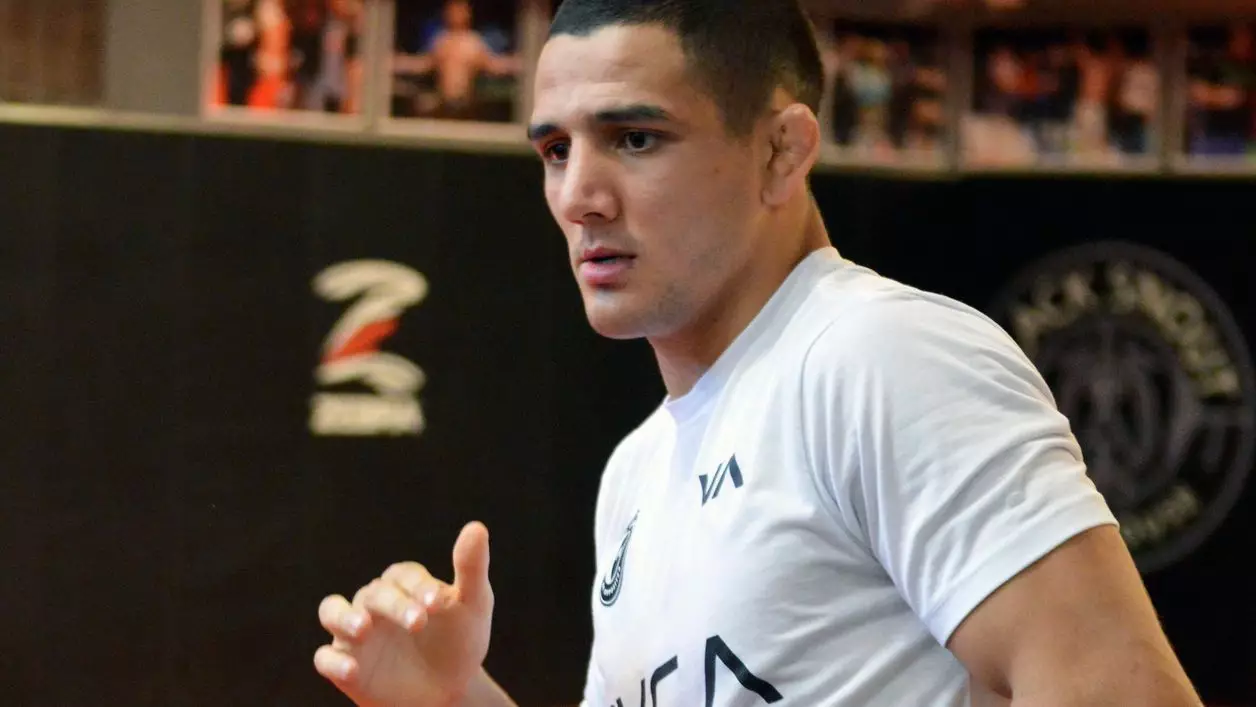In a landscape as volatile as mixed martial arts, Aaron Pico’s recent declarations regarding his career signify a monumental turning point. The 28-year-old fighter, known for his impressive striking capabilities with nine of his 13 victories coming by knockout, has made it abundantly clear: he will not fight for the Professional Fighters League (PFL) again, regardless of potential financial incentives or contractual obligations. His resolute stance may cost him an entire year of competition, but for Pico, the prospect of enduring such a hiatus is preferable to re-entering the PFL roster.
Currently navigating the choppy waters of free agency, Pico’s ambitions to join the Ultimate Fighting Championship (UFC) are complicated by the PFL’s contractual matching rights. This legal stipulation allows the PFL to counter any offer Pico receives, trapping him in a business model that he claims lacks trust and transparency. This situation is not only a personal struggle for Pico but also reflects a broader concern among former Bellator fighters since the PFL acquired the organization. Fighters have voiced frustrations over canceled bouts and stagnation in their careers due to the lack of fight opportunities.
Pico’s plight underscores the challenges that come with promotional ownership changes. He emphasized his unwillingness to engage with the PFL after having endured significant frustration, citing three canceled fights. In his own words, Pico expressed, “I haven’t been able to work.” It is a reminder that for many fighters, the opportunity to compete is as crucial as the financial aspects that often dominate discussions in combat sports.
The reaction from the PFL has been one of concern and perhaps dismay, as co-founder Donn Davis expressed admiration for Pico and labeled the enforcement of matching rights as a standard business practice. However, this adherence to protocol raises questions about the fighter’s voice amid corporate decisions. Pico’s declaration—he would prefer to sit out rather than fight for the PFL—highlights the ongoing struggle for fighter autonomy in an industry that often prioritizes promotional interests over individual aspirations.
Adding further complexity to this debate is the recent trend of fighters actively seeking releases from their contracts. Names like Gegard Mousasi and Patricio Pitbull Freire have left the organization, opting for alternative routes as they seek more accommodating promotional environments. The current climate has prompted even champions like Patchy Mix to openly request their exits, indicating a palpable unrest that could lead to significant changes in how promotions operate.
Looking ahead, Aaron Pico’s resolve may inspire other fighters to prioritize their careers and opportunities over loyalty to a promotion. With changes announced for PFL’s competition structure in 2025, fighters are reassessing where they see their future. In Pico’s case, his path might lead to the UFC—a destination that not only offers the chance for more competitive matchups but also a platform to showcase his potential fully.
As the mixed martial arts landscape continues to evolve, Aaron Pico’s narrative is one of resilience and self-determination. It serves as a rallying call for fighters everywhere to advocate for their rights, seek out favorable conditions, and ultimately pursue the career paths that align with their ambitions. For Pico, the fight may be more than just inside the cage; it extends into the contentious domain of contractual obligations and personal fulfillment.


Leave a Reply